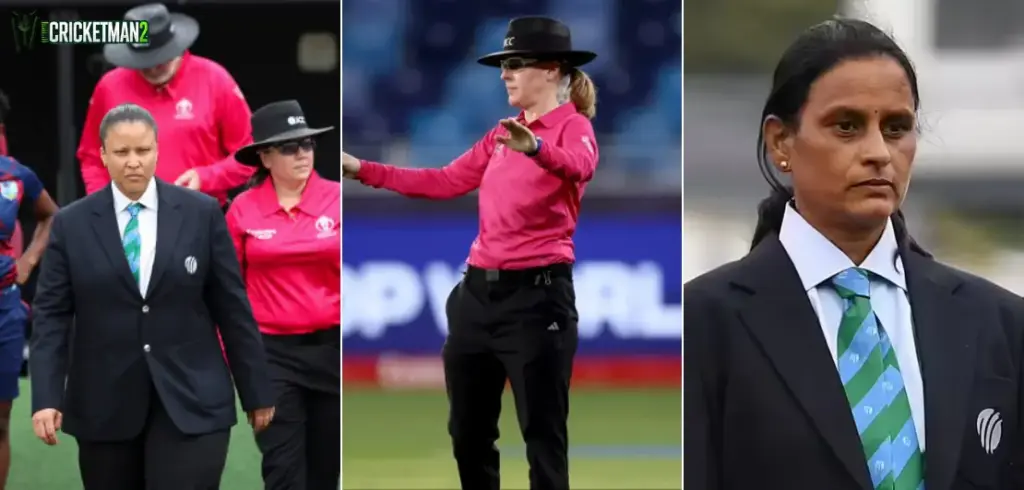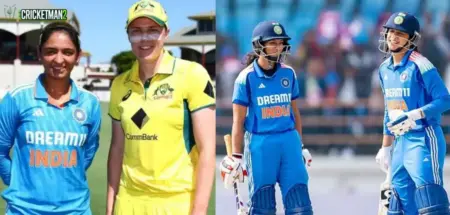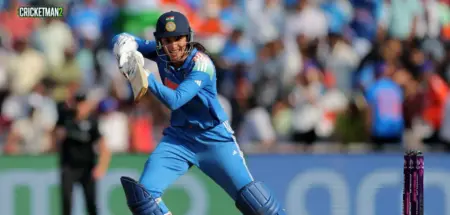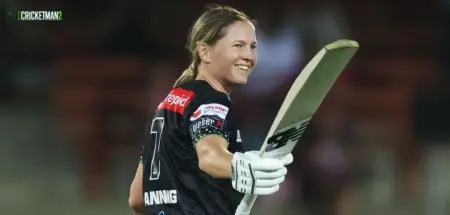The ICC Women’s Cricket World Cup 2025 is set to be historic—not just for the cricket played but for the officiating crew. For the first time in Women’s World Cup history, the ICC has appointed an all-female Emirates Panel of Match Officials—a total of 14 umpires and 4 match referees—to oversee the tournament. This move underscores the ICC’s commitment to gender equity, visibility, and creating role models in cricket beyond the playing field.
ICC Women’s World Cup 2025: All‑Female Umpiring List:
Match Referees (4)
- Trudy Anderson
- Shandré Fritz
- GS Lakshmi
- Michelle Pereira
Umpires (14)
- Lauren Agenbag
- Candace la Borde
- Kim Cotton
- Sarah Dambanevana
- Shathira Jakir Jesy
- Kerrin Klaaste
- Janani N (Narayanan Janani)
- Nimali Perera
- Claire Polosak
- Vrinda Rathi
- Sue Redfern
- Eloise Sheridan
- Gayathri Venugopalan
- Jacqueline Williams
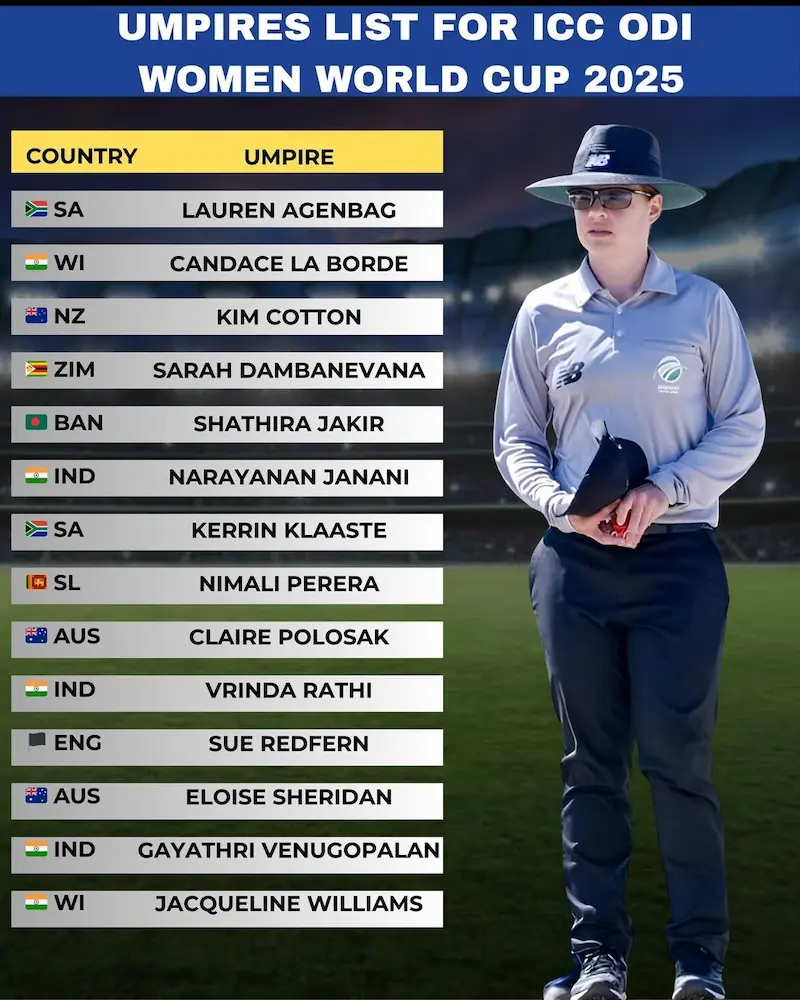
This collection of match officials comes from nine different countries, bringing diverse experience, backgrounds, and perspectives. Many among them are veterans: Claire Polosak, Jacqueline Williams, and Sue Redfern are making their third Women’s World Cup appearances, while Lauren Agenbag and Kim Cotton are officiating their second.
By appointing women in all officiating roles, the ICC strengthens the message that leadership and stewardship in cricket are not bound by gender. It also helps to normalize women in roles traditionally dominated by men, potentially inspiring more women globally to consider careers in officiating.
Match‑wise Appointments & Opening Match Officials
From the league phase onward, ICC has announced match-wise assignments of the officiating panel. Below are some key highlights:
- Opening Match (India vs Sri Lanka, Sep 30):
On‑field umpires: Claire Polosak and Eloise Sheridan
TV umpire: Kim Cotton
Fourth umpire: Shathira Jakir Jesy
Match referee: Shandré Fritz - Australia vs New Zealand (Oct 1):
On-field umpires: Sue Redfern and Gayathri Venugopalan - Bangladesh vs Pakistan (Oct 2):
On-field umpires: Lauren Agenbag and Nimali Perera
Assignments for semi-finals and final are to be announced closer to those stages, based on rankings and performance.
High-Stakes Match Highlight: India vs Pakistan (Oct 5)
One of the tournament’s marquee fixtures is India Women vs Pakistan Women on October 5 at Colombo. The officiating appointments for this match are:
| Role | Official |
|---|---|
| On‑field Umpires | Lauren Agenbag, Nimali Perera |
| Third Umpire | Kerrin Klaaste |
| Fourth Umpire | Kim Cotton |
| Match Referee | Shandré Fritz |
This assignment underscores ICC’s intention to distribute prominent matches across the female panel, giving key roles to top-tier officials.
See Also:- Queen of Cricket: Mithali Raj Records & Smriti Mandhana Rise
Why This Matters: Impact & Implications
1. Visibility & Role Models
When high-profile international matches are officiated exclusively by women, it sends a strong message: women are fully capable at every level of the sport—not just on the field but also behind it.
2. Breaking Barriers
Several of these women have already made history—for example, Kim Cotton has umpired globally important matches, and GS Lakshmi, as a match referee, marks her place in history as a prominent female official from India.
3. Pathways Forward
This initiative encourages young women in cricketing nations to consider pathways in officiating, umpiring, and match management—broadening the scope of careers beyond just playing.
4. Performance Under Spotlight
With every decision scrutinized, the onus is on the panel to deliver high standards of fairness, consistency, and professionalism. Their performance will help shape perceptions and future opportunities.
Final Thoughts
The ICC Women’s World Cup 2025 is not just a celebration of top-level women’s cricket; it’s also a landmark moment for gender equity in sport administration. By entrusting the entire officiating responsibilities to a talented group of women, the ICC sends a powerful message about capability, equality, and aspiration. As the tournament unfolds, these women will be at the heart of every match: making decisions, shaping games, and leading change.


